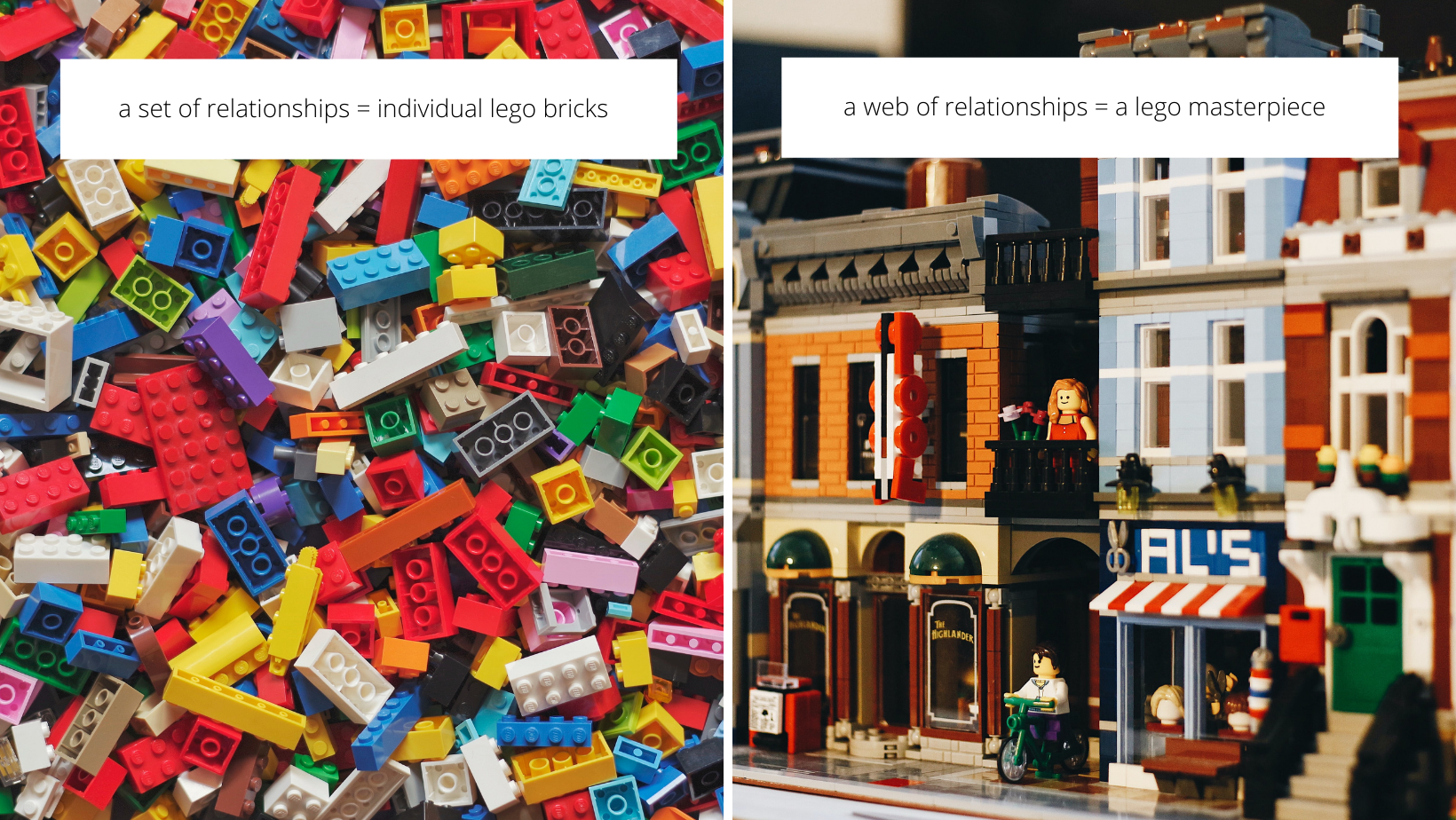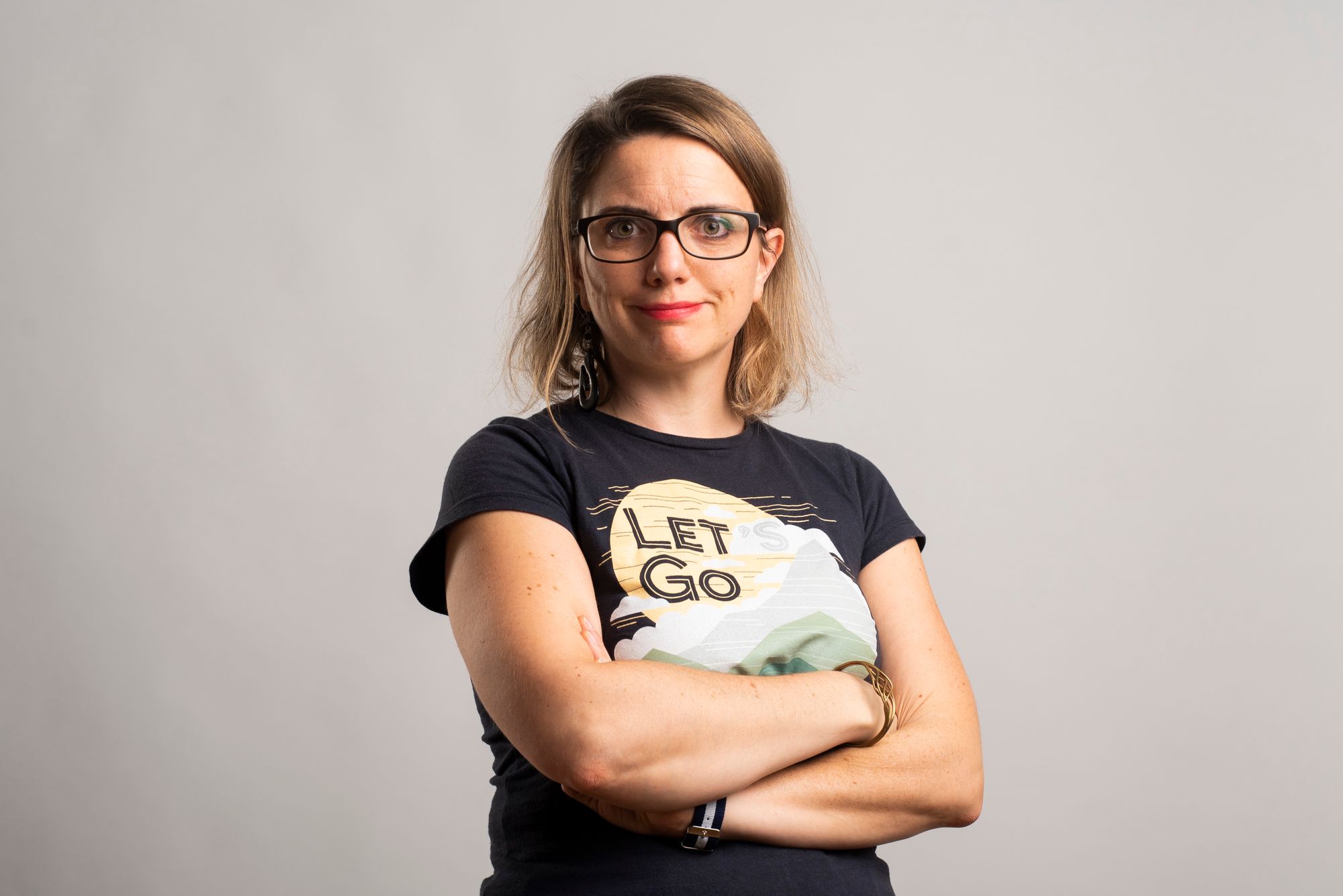Interested in understanding your web of relationships?
How does a community grow? Through meaningful connections. Your community does not only have a set of links between people, but your community is a web of relationships. Communities feel different because they have a different web of relationships. Learn how to work with this web.
I always end up coming back to creating meaningful connections. Why join a community? To create meaningful connections. After moving cities or countries, what makes the new place feel like home? Meaningful connections. How does a community grow? Through meaningful connections. It's always about relationships.
Connections are the links between people. Often forgotten is that they do not exist in isolation: We live in a web of connections. The same applies to your community. Your community does not only have a set of relationships between people, but your community is a web of relationships. This distinction is fundamental.

No two webs of relationships are the same. They have different structures, and through this, the community feels different. In this mini-course, you will learn about these structures that form the backbone of your community. The course will have two units:
Unit 1: What is the purpose of your community?
After completing Unit 1, you will tell an engaging story about the sense of your community.
In this part, you will learn about the four essential elements for creating a sense of community: Membership, Influence, Integration & fulfillment, and Shared emotional connection. The unit ends with an exercise helping you define the purpose of your community and how you want to create a sense of community.
Unit 2: What web of relationships do you want to develop?
After completing Unit 2, your community activities will give rise to your ideal web of relationships.
In this part, you will learn about social network analysis, the social science version of system thinking. You will learn about typical relationship patterns, distribution of power and influence, and which web of relationships is most resilient. The unit ends with an exercise: You will draw the ideal web of relationships and create a strategic plan.
Where to start?
The course is self-paced. It is just above 4000 words. Reading and digesting the content will take around 30 minutes to 1 hour. Of course, longer if you have a look at the extra material. Set apart 20 to 30 minutes for each exercise.
Not sure this mini-course is the right thing for you? Have a look at my articles on communities or teams. Many of my pieces are built on the idea of a web of relationships and include social network analysis.
The course is currently available on my website for Founding Members. A downloadable version will soon be available, and video material will follow. New Founding Members will receive a 20% discount.
If you have questions, you can reach out to me via Twitter or email.
Who am I?
I'm Dr. Katerina Bohle Carbonell, a social scientist fascinated by networks and the relationships around us. I completed my Ph.D. in 2016 at Maastricht University (The Netherlands). During my degree, I spent ten months at Northwestern University. Thanks to this visiting scholarship, I connected with academics at the School of Education and Social Policy, where I have been teaching a course on organizational performance since 2016.
In addition to teaching at Northwestern University, I have spoken at international conferences (Repeople 2021), and workshops (Remote Leadership Accelerator 2021). I'm an instructor in Rowena Hennigan's Future Work Now lecture series.
I run a data analytics company working with international clients in the leadership development industry and private educational sector.
